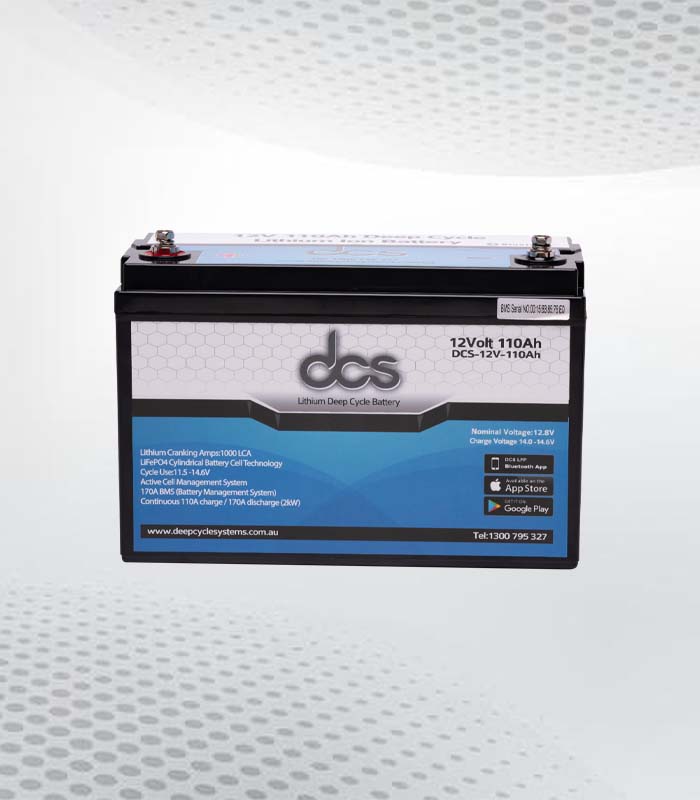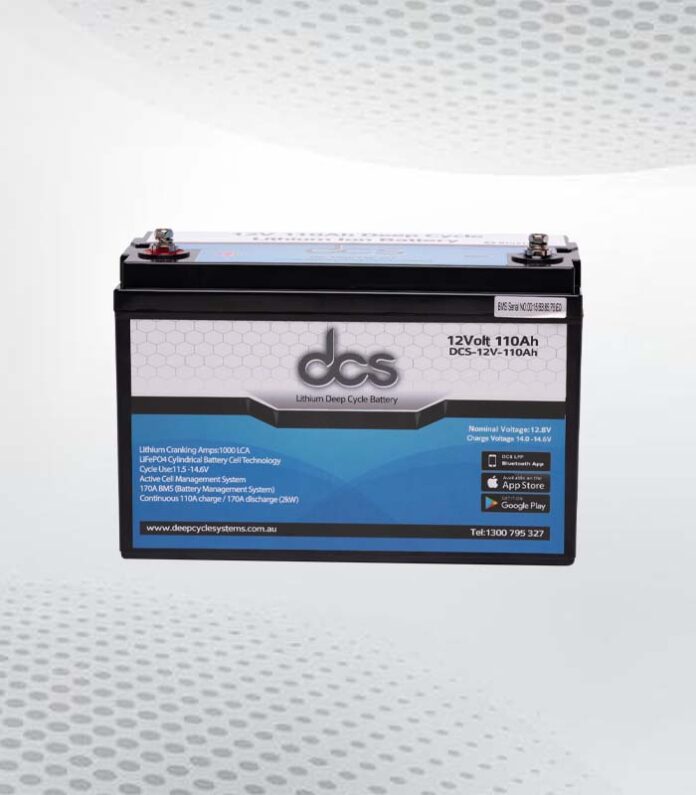Do you want to recharge your devices constantly or need help with low battery life? Look no further than the 12-v 80-ah LiFePO4 battery. This powerful and reliable battery is a game-changer for staying powered up on the go. In this blog post, we will explore the benefits of using a 12v 80 ah battery, how to optimise its usage, where it can be used, maintenance tips, and much more. Let’s dive in!
Understanding the Basics Of 12-V 80-Ah LiFePO4 Batteries
LiFePO4 represents lithium iron phosphate, a rechargeable battery chemistry that combines durability with performance. The notation 12-v 80-ah signifies the electrical characteristics of the battery – a voltage of 12 volts and an ampere-hour (Ah) rating of 80. This configuration indicates the battery’s capacity to deliver or store a specific amount of electrical energy. In practical terms, the 12-volt rating aligns with many standard electrical systems, making these batteries versatile for various applications.
The 80-amp-hour capacity underlines the battery’s ability to supply a consistent energy output over an extended period, which is crucial for applications requiring sustained power without frequent recharging. Unlike other battery technologies, the LiFePO4 chemistry is lauded for its robustness and safety features, including resistance to overheating and potential thermal runaway scenarios. This makes the 12-v 80-ah LiFePO4 battery not only a reliable source of power but also a safer alternative for both consumer and commercial applications.
The Advantages of Choosing a LiFePO4 12v 80ah Battery
Selecting a LiFePO4 12-v 80-ah battery brings many advantages over traditional battery chemistries. Its longevity is a significant benefit, with these batteries outlasting conventional lead-acid counterparts considerably, offering enhanced cost-efficiency over time. The rapid charging capability of these batteries ensures that devices and systems are quickly powered up and ready for use, minimising downtime and increasing productivity. Furthermore, the compact and lightweight nature of LiFePO4 batteries facilitates easier handling and installation in various settings despite their high power capacity.
Environmental benefits also play a crucial role, as these batteries exhibit a lower environmental impact due to their non-toxic materials and absence of lead, making them a more sustainable choice. Their inherent safety features, including stability at high temperatures and resistance to thermal runaway, underscore the importance of user safety in their design. This makes the LiFePO4 12v 80ah battery a practical and responsible option for powering devices, aligning with modern needs for efficiency, safety, and environmental consciousness.
Optimising Your 12-V 80-Ah Battery Usage
To harness the full potential of your 12-volt 80-ampere-hour battery, it is essential to adopt strategies that optimise its performance and extend its service life. It is pivotal to avoid allowing the battery to fully deplete before recharging. Consistently discharging the battery to a low level can significantly shorten its lifespan. Instead, maintain a more frequent charging routine to preserve the battery’s integrity over time.
Moreover, evading the temptation to overcharge the battery is equally crucial. Implementing a charging regimen that stops once the battery reaches total capacity prevents the detrimental effects of overcharging, such as reduced efficiency and potential damage. To facilitate this, it is highly recommended that you use a smart charger, which automatically halts the charging process at the optimal moment.
Equally important is regularly monitoring the battery’s state of charge. This not only helps maximise its operational efficiency but also identifies potential issues early on. Integrating a battery management system can be a worthwhile investment, offering real-time monitoring and safeguarding against common pitfalls such as overcharging and deep discharging.
Where to Use Your LiFePO4 80ah 12v Battery
The versatility of the LiFePO4 80ah 12v battery extends its utility beyond the commonplace, catering to a diverse range of applications. Its suitability for use in motorhomes and boats highlights its adaptability to life on the move, offering a dependable power source for long journeys or maritime adventures.
Similarly, its compatibility with solar energy systems presents an eco-friendly solution for harnessing renewable energy, making it an ideal choice for off-grid living or backup power solutions. The battery’s robust capacity and lightweight nature make it a prime candidate for electric vehicles, supporting cleaner transportation options.
Furthermore, this battery proves invaluable for outdoor enthusiasts or those requiring portable power solutions, ensuring that necessities and luxuries remain operational, be it in remote camping locations or during extensive cycling tours. Its ability to power a wide array of devices and systems reliably and efficiently underpins its status as a versatile power solution tailored to the demands of modern living and various leisure activities.
Maintenance Tips For Your 12-V 80-Ah Battery
Ensuring the longevity and optimal performance of your 12-v 80-ah battery is paramount. Proper maintenance can drastically extend the life of your battery, ensuring it remains efficient and reliable.
Regular Inspection and Cleaning
Clean the terminals and connections to prevent corrosion, which can significantly impede the battery’s performance. Use a mixture of bicarbonate of soda and water to neutralise any acid build-up and a brush to clean the terminals gently.
Keep the Battery Charged
Avoid letting your battery deplete entirely. Deep discharges can be harmful over time, reducing the battery’s lifespan. To ensure longevity, try to maintain a charge level above 20%. A smart charger that ceases charging once full capacity is reached can help maintain optimal health.
Temperature Management
Store and operate your battery within its recommended temperature range. Extreme cold or heat can affect the battery’s efficiency and capacity. To avoid temperature-related degradation, store the battery in a cool, dry place when not in use, especially during extreme weather conditions.
Routine Cycling
Even if not in regular use, it’s beneficial to cycle the battery through the charge and discharge phases periodically. This practice helps in maintaining the battery’s ability to hold a charge. Aim for a complete charge and discharge cycle at least once every six months to prevent the battery from remaining in a discharged state for prolonged periods. This could lead to sulphation and ultimately reduce its capacity.

Making the Switch to a 12v 80ah LiFePO4 Battery
Transitioning to a 12v 80ah LiFePO4 battery represents a forward-thinking move for those seeking to enhance the performance and reliability of their power sources. With the sector evolving, these batteries have become a more cost-effective solution, offering significant returns on investment through their extended lifespan and reduced maintenance requirements.
The swift charging times associated with LiFePO4 technology mean less downtime waiting for batteries to recharge, a boon for personal and professional use. The environmental credentials of these batteries further bolster the case for making the switch, with their eco-friendly composition and absence of hazardous substances offering peace of mind to the environmentally conscious user.
For individuals and organisations aiming to modernise their energy solutions, adopting this advanced battery technology not only aligns with goals for sustainability but also ensures compatibility with a range of devices and systems, courtesy of its versatile design. Transitioning to this technology is streamlined, thanks to its compatibility with existing setups, ensuring that the switch is a step towards greater energy efficiency and a move towards a more sustainable and reliable power solution.
Boosting Performance With 12-V 80-Ah Batteries
The remarkable capacity of 12-v 80-ah batteries to enhance performance across various platforms cannot be overstated. For example, this battery specification is a game-changer in the realm of electric vehicles (EVs). It offers extended ranges and a more reliable power supply, ensuring more prolonged periods of use before the need for recharging arises. This aspect is particularly crucial for EV owners keen to maximise their vehicle’s operational efficiency whilst reducing downtime associated with charging.
In environments that demand high power outputs, such as in recreational vehicles or when powering sophisticated electronics in remote locations, the robust production of the 12-v 80-ah battery proves invaluable. Its ability to maintain a steady power supply, even under high-demand situations, ensures that all connected devices function optimally, enhancing the overall user experience.
Moreover, for applications where multiple devices or systems need to be powered simultaneously, the 12-v 80-ah battery stands out for its easy handling of such loads. This makes it an excellent choice for setups that require a dependable and consistent energy source to keep everything running smoothly without the risk of power drops or system failures.
Maximising Efficiency With A LiFePO4 Battery 12v 80ah
The essence of maximising efficiency with a 12-v 80-ah LiFePO4 battery lies in its ability to support high-demand applications with unparalleled energy density. Adopting such a battery transforms the landscape of power systems, enabling a leap in operational effectiveness. Its rapid charging feature drastically reduces the idle time waiting for power restoration, a critical advantage in both professional and leisure scenarios.
This battery’s compact and lightweight design further contributes to its efficiency, allowing seamless integration into many setups without the cumbersome bulk associated with traditional batteries. Leveraging the robustness and reliability of a LiFePO4 battery simplifies the logistics of power management and ensures a consistent energy supply.
Thus, by integrating a LiFePO4 battery 12v 80ah into your energy setup, you are investing in a solution that amplifies efficiency, ensuring that power is always available when and where it is most needed, without the typical drawbacks of older battery technologies. This strategic choice propels your energy system into higher performance and reliability, underpinning the vital operations of today’s energy-dependent activities.
Conclusion
In essence, the transition to a 12-v 80-ah LiFePO4 battery represents a prudent choice for those seeking enhanced performance, reliability, and environmental sustainability from their power sources. By embracing this advanced battery technology, users can enjoy many benefits, including improved efficiency, safety, and a longer lifespan, thus making it a compelling option for many applications. The forward-looking approach to energy management underscores the growing importance of adopting solutions that meet current demands and anticipate future needs, solidifying the role of LiFePO4 batteries in the evolution of power storage and utilisation.
FAQs
What is the capacity of a 12-V 80-Ah battery?
A 12-V 80-Ah battery has a capacity of 80 ampere-hours at 12 volts. This means it can provide 80 amps of current for one hour or proportionally lower current for extended periods, such as eight amps for 10 hours.
How long can a 12-V 80-Ah battery power a device?
The runtime of a 12-V 80-Ah battery depends on the device’s power consumption. For instance, a device consuming 40 watts would run for approximately 24 hours (80 Ah x 12 V / 40 W = 24 hours).
What are the typical applications of a 12V 80 Ah battery?
A 12V 80 Ah battery is commonly used in applications such as marine, RVs, solar power systems, and backup power supplies. Its high capacity and durability make it suitable for powering devices that require steady and reliable power.
How should a 12-V 80-Ah battery be charged?
To charge a 12-V 80-Ah battery, use a charger designed for 12-volt batteries with an output current that does not exceed the battery’s recommended charging rate. Typically, a 10-amp charger is suitable, and it takes about 8 to 10 hours to charge the battery fully.
What is the lifespan of a 12-V 80-Ah battery?
The lifespan of a 12-V 80-Ah battery varies based on usage, charging practices, and maintenance. Generally, it can last between 3 and 5 years. Proper maintenance can extend its lifespan, such as avoiding deep discharges and overcharging.
How to maintain a 12-V 80-Ah battery for optimal performance?
Maintaining a 12-V 80-Ah battery involves regular checks to ensure its appropriately charged, keeping the terminals clean and corrosion-free, storing it in a cool, dry place, and avoiding complete discharges. Periodic equalization charges can also help maintain its health and performance.
| Other Good Articles to Read |
| skank blogs |
| unreal blogs |
| tba blogs |
| all city forums |
| dany blogs |
| refuge blogs |
| the music blogs |
| key forums |
| the big blog theory |
| joe blogs |
| blogs 4 me |
| Blogs Emon |
| Related Business Listings |
| Contact Directory |
| Local Business Profiles |

